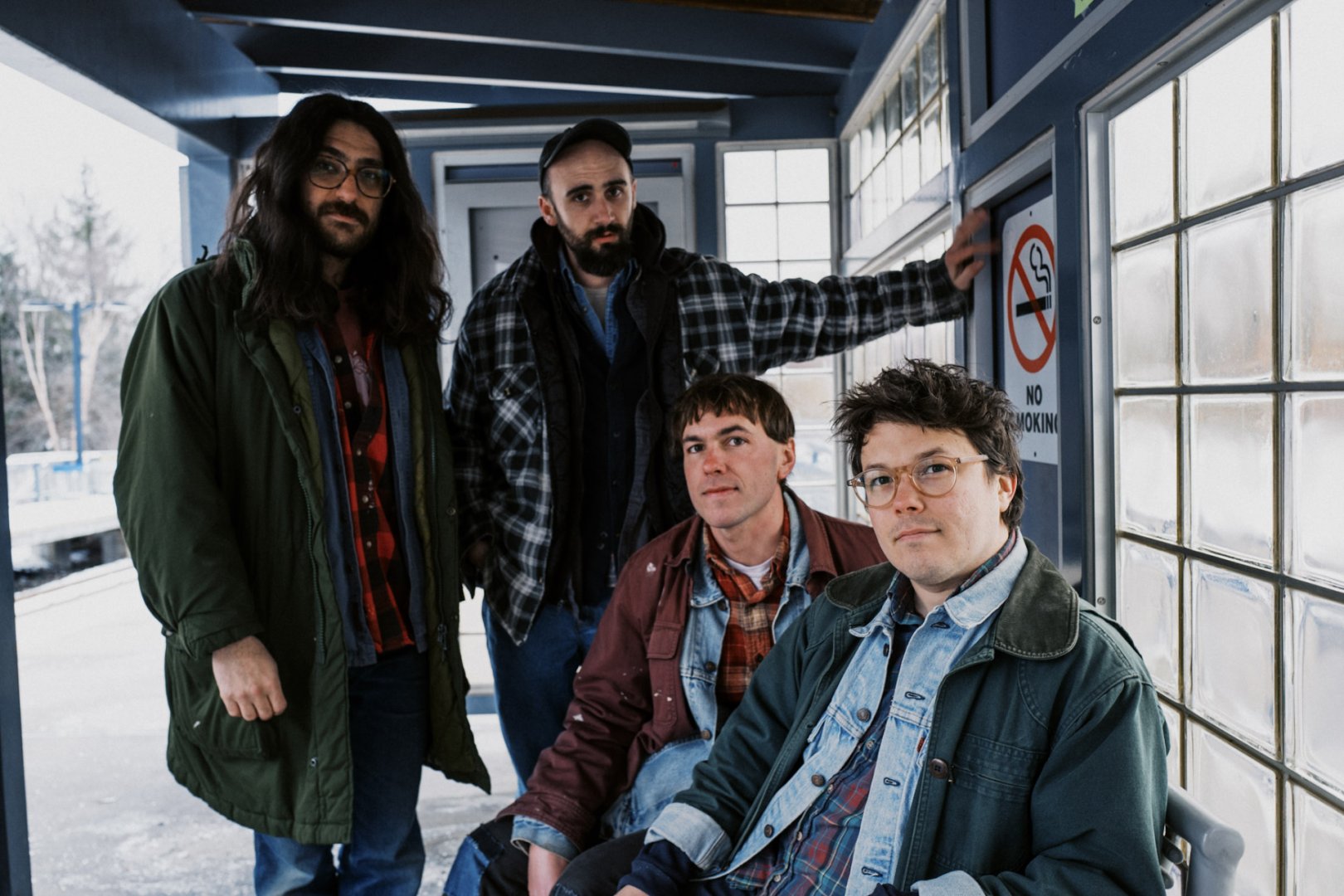Music for sleeping and waking, walking and driving, hunting and fishing, for loitering outside a roadhouse on the haunted tundra. Okay in elevators, not great for dinner. On Caveman Wakes Up Friendship’s new album and second for Merge Records, the band’s historically capacious definition of country music grows wider still. Shambolic guitars are offset by flute pads, bleary poetry is set against a Motown rhythm section, a song about Jerry Garcia and First Lady Betty Ford fades out with a drum solo, like if Talk Talk came from a dingy Philadelphia basement, and was fronted by James Tate. Songwriter Dan Wriggins’ ragged baritone cuts through eleven murky, swirling country-rock songs with profound lyrical substance and sincerity. Like an alarm clock incorporated into the edge of a dream, Caveman Wakes Up belongs equally to the conscious and subconscious mind, fraught with background, steeped in reference and experimentation, delivered casually and as a dire warning, dedicated, above all, to music’s creative soul.
Over the years, dedication has paid off. Friendship has become a kind of reverse supergroup, wherein the band itself and each individual member is located centrally in an increasingly prominent scene of young folk and country musicians and songwriters. Drummer Michael Cormier O’Leary leads the instrumental collective Hour and, along with bassist Jon Samuels, run Dear Life Records, home to friends and peers who count Friendship as a major influence, including MJ Lenderman, Florry, and Fust. (Samuels also plays lead guitar in MJ Lenderman and the Wind). Guitarist Peter Gill’s band 2nd Grade records prolifically. Wriggins began writing the songs of Caveman Wakes Up on a downtuned classical guitar of Lenderman’s, and finished on a barely-tuned piano in an apartment he shared with Sadurn’s G DeGroot.
In the summer of 2023, Wriggins had just left the Iowa Writers’ Workshop, where his love for poetry and mistrust for the academic poetry world grew in tandem. A relationship fell apart, and Wriggins crashed for several weeks at Lenderman’s and Wednesday’s Karly Hartzman’s home in North Carolina, where he recorded the first demos of “Resident Evil,” “All Over the World,” and “Love Vape.” Wriggins returned to Philadelphia, and the band got to work on new ideas, finally tracking the album in five days with engineer Jeff Ziegler (Mary Lattimore, War on Drugs). Wriggins recorded vocals with Love the Stranger engineer Bradford Kreiger, and organ, violin (Jason Calhoun), and flute (Adelyn Strei) were recorded by Lucas Knapp in a West Philadelphia church.
Lyrically, Caveman Wakes Up covers familiar Friendship ground — the sacred is profaned and the profane sanctified. On “All Over the World,” a landscaper “[feels] the beating heart of God/ laying down a roll of sod.” Characters complain about work and marvel at love. Here, however, we get Wriggins’ first real confrontation with depression, in “Hollow Skulls,” “All Over the World,” and “Resident Evil,” where the soul wages its perpetual war against darkness and stagnation. It often loses. The verses of Hollow Skulls are punctuated by passages of musical emptiness, a single suspended chord and brushes on a snare drum. When Wriggins complains about a roommate, shouting “who’s that shithead in my living room/ playing Resident Evil,” it’s abundantly clear there is no roommate, that the evil resides within.
Caveman Wakes Up showcases Friendship’s particular genius for visionary arrangement, indebted equally across generations to to the folk-rock canon of Neil Young, Joni Mitchell, and Emmylou Harris, to Indie stalwarts like Yo La Tengo and Merge labelmates Lambchop, to contemporaries like Lomelda and ML Buch. Several of the songs employ fade-outs, jokingly referred to in the lyrics of “Love Vape,” and there are other elements lifted from Motown and 70s ballads: locked-in drum patterns, bass intervals, sentimental string arrangements. Each reference is pushed past genre, swirling and repeating, into something new and squarely belonging to the Friendship sound. On “Free Association,” “Artex,” and “Wildwood in January,” the groove is established so that other sounds can come and go seamlessly; mellotron patches, piano flurries and stabs, and clean guitar melodies, teeming textures disguised in unity. As a work of music production, Caveman Wakes Up is Friendship’s most advanced work yet, another testament to the band’s devotion and care.
A droning chord calms nerves. A surreal poem moves us not because it’s familiar, but because it grows, stirs up the stagnant waters. A sizzle in the brain stem. Negative capability. Caveman Wakes Up is dreamy, luscious new growth for a band that has become an increasingly verdant oasis in the crescent of indie country civilization. Sure to excite and mystify, to continue growing, to cause new life.



